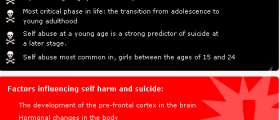
Dyslexic individuals are prone to being forgetful and disorganized. However, above that, they have problems with writing and spelling, as well as reading and expressing themselves orally. Dyslexia affects one's reading, spelling and writing, being a learning disorder which is present in many people, young and old, around the globe.
Further Information on Dyslexia
The causes behind dyslexia are yet to be discovered. Yet, weakness in memory, hand-eye coordination and sequencing abilities of an individual are known to influence the genesis of this condition. Also, dyslexia often runs in families, being a potentially genetically triggered condition. Alternatively, this problem can stem from certain health issues which have been bothering a person in his/her childhood. Poor hearing, ear infections and other such problems in childhood may inhibit one's capability of hearing and perceiving sounds, escalating to dyslexia in the long run.
Several different types of dyslexia exist, depending on the level of severity behind this phenomenon. Some dyslexics cannot read at all, while others may be capable of reading, spelling and writing, but perform these actions with mistakes and difficulties. Additionally, in some cases, dyslexia disappears in time and people recover from it completely.
All in all, there are certain signs of dyslexia which can help both parents and the affected children recognize this disorder in teenagers.
Signs of Dyslexia in Teenagers
One of common manifestations of dyslexia is reading through the lines several times before actually understanding the meaning they carry. Namely, dyslexics may read with ease, but may have troubles extracting the meaning from what they read. Also, transferring their own thoughts into letters, words and sentences may be very hard for dyslexics and they might not remember the necessary words or make numerous spelling mistakes. Some dyslexics cannot use the dictionary successfully or may have an ugly handwriting even though they give their best to produce it.
Sometimes, dyslexic people cannot understand what others are saying to them, or may have problems memorizing tasks, telephone numbers and other such information. Difficulty understanding maps, remembering what left and right directions are and the overall confusion with equation or formula memorizing can all be signs of dyslexia.
All these problems may lead to anxiety and nervousness. Thus, if you find paperwork tiring and extremely annoying, or if reading makes you tense, you might have a problem.
If some, let alone many of these signs are present in your case, you are advised to seek medical assistance and learn how to cope with these difficulties.

















Your thoughts on this
Loading...